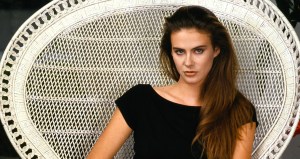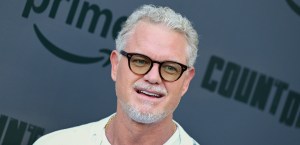Late actor Gene Hackman and his spouse Betsy Arakawa maintained an intensely private existence in their final years, according to testimony from the Oscar winner’s longtime representative during a recent court proceeding regarding their death investigation records.
Susan Madore, co-CEO of Guttman Associates who worked with Hackman for 27 years, revealed the couple’s strong desire for seclusion during a Santa Fe judicial hearing where District Judge Matthew J. Wilson ultimately ruled on Monday to seal photographs and videos depicting the deceased couple’s remains, USA Today reported.
Videos by PopCulture.com
The legal proceeding addressed which materials from the investigation into their February deaths should be accessible to the public. While Judge Wilson prohibited the release of bodily images, autopsy photographs, and certain police bodycam footage, he denied restrictions on other records, such as audio files and reports that don’t show their remains.
According to Rolling Stone, Madore testified that Hackman once purchased property adjacent to a waste disposal facility simply to secure an area where he could cycle without being observed. “He wanted the privacy of being able to ride his bike without anyone following him or observing him,” she stated, adding that Arakawa contacted her after the real estate acquisition because “she wanted me to be aware if anyone called asking why Mr. Hackman lived at the dump.”
The publicist also described the couple’s negative reaction when CBS proposed featuring them on Sunday Morning shortly before their deaths. Despite the network suggesting they would proceed with coverage using commentary from others familiar with the pair, Hackman and Arakawa strongly objected.
“When I told Gene and Betsy about it, they were horrified,” Madore recounted. “They decided not to do the piece. They didn’t want to upset Gene and Betsy.”
When questioned about the potential posthumous release of investigation materials, Madore expressed certainty that Hackman would have opposed such disclosure. “For anything like that to be out in the public, any entity can use it however they want in perpetuity,” she testified. “He would have never agreed in his life for that to happen, so why would we think he would agree to it in his death?”
The couple’s family members, including Hackman’s three adult children and Arakawa’s mother, Yoshie Feaster, advocated for privacy protection. In court documents obtained by The Independent, Feaster pleaded, “I humbly come before this court to request that this court respect my right to grieve in peace… The public spectacle surrounding my daughter’s death is one that no parent should have to live through.”
The legal action came after the Santa Fe County Sheriff’s Office had already released some bodycam footage showing investigators speaking with witnesses about conditions inside the residence.
Hackman, 95, and Arakawa, 64, were discovered deceased in their Santa Fe home on Feb. 26. At a March press conference, New Mexico’s chief medical examiner Dr. Heather Jarrell revealed Hackman died of natural causes complicated by heart disease and Alzheimer’s, while Arakawa succumbed to Hantavirus pulmonary syndrome, a rare illness contracted through contact with rodent droppings.
The case highlights the ongoing tension between public interest in celebrity deaths and families’ desire for privacy during mourning, with Judge Wilson acknowledging that “injunctions are a harsh and drastic remedy, which should issue only in extreme cases of pressing necessity.”








